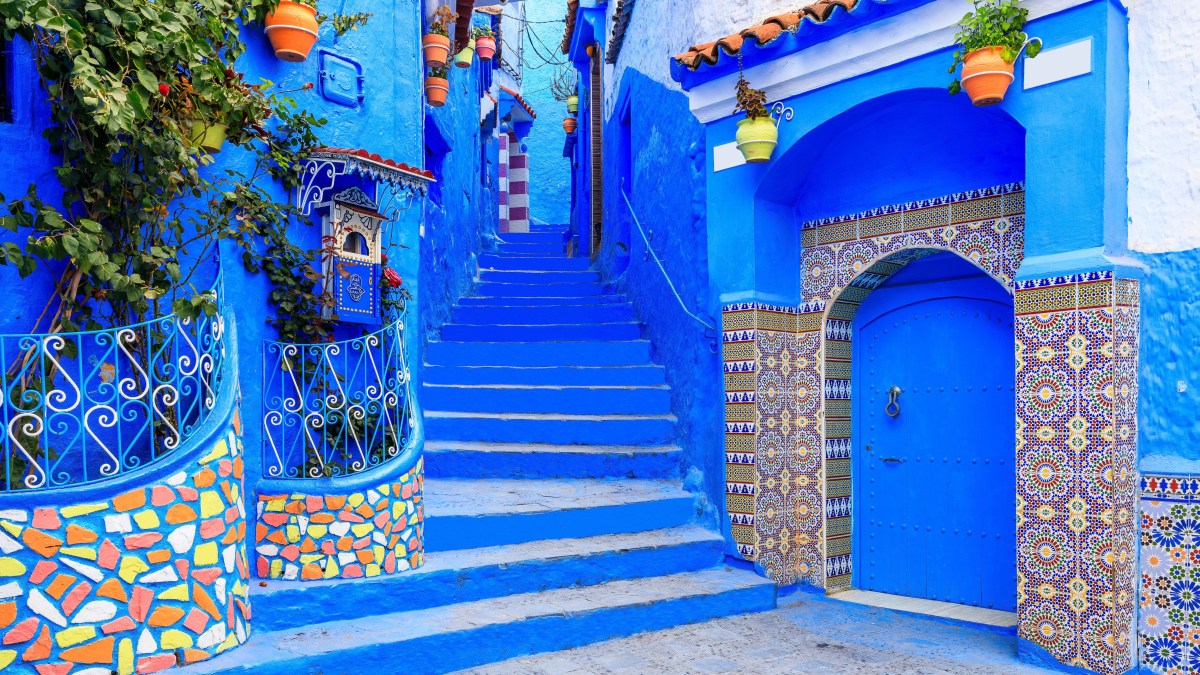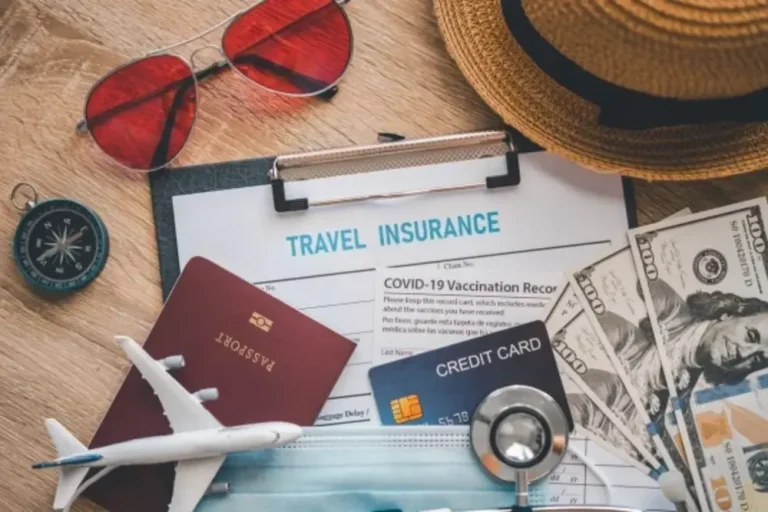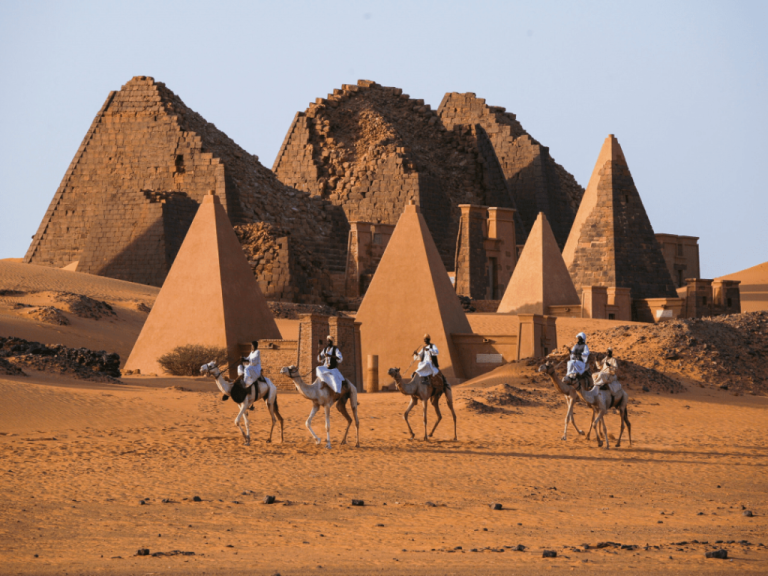For many Nigerians, Morocco is a top travel destination in North Africa. From the lively souks of Marrakesh to the calm beaches of Agadir, the busy medinas of Fez, and the famous blue streets of Chefchaouen, Morocco offers a unique mix of African tradition, Arab culture, and European influences. It is also one of the nearest North African countries to Nigeria, with flights taking less than six hours from Lagos or Abuja.
However, before you can enter this vibrant country, you need to be aware of one important requirement: Nigerians must get a tourist visa before traveling to Morocco. The visa application process may seem daunting if you have never done it before, but with proper preparation, it is easy. This article will guide you through everything you need to know as a Nigerian applying for a Moroccan tourist visa, including requirements, costs, step-by-step application procedures, embassy information, and practical travel advice.
Do Nigerians Need a Visa to Visit Morocco?
Yes. Ordinary Nigerian passport holders must apply for a visa before entering Morocco. Unlike citizens of some African and European countries who can enter without a visa, Nigerians must go through the consular application process.
There are exceptions. Holders of Nigerian diplomatic or official passports may be exempt from visa requirements under specific bilateral agreements. However, for most Nigerian tourists planning a vacation, honeymoon, or brief visit, the Moroccan tourist visa is necessary.
Requirements for a Moroccan Tourist Visa from Nigeria
When applying for a Moroccan tourist visa in Nigeria, you need to gather a set of documents. These documents show the Moroccan authorities that you are a legitimate visitor with the financial means and intention to return to Nigeria.
The standard requirements include:
- Completed Visa Application Form: This form must be filled out accurately and signed. It is available for download on the official Moroccan consulate website or at the embassy in Abuja.
- Valid Nigerian Passport: Your passport must be valid for at least six months beyond your intended entry date into Morocco. It should also have at least two blank pages.
- Passport Photographs: Two recent passport-sized photographs with a white background, sized 35mm x 45mm.
- Flight Itinerary: A copy of your flight reservation (you don’t need to buy a ticket when applying, but it should be a confirmed booking).
- Hotel Reservation or Invitation Letter: If you are staying in a hotel, provide proof of booking. If you are visiting family or friends, include a notarized invitation letter from your host, along with a copy of their Moroccan ID or residence permit.
- Proof of Sufficient Funds: Typically, a recent six-month bank statement stamped by your Nigerian bank. This shows you have enough money to pay for your stay.
- Proof of Employment or Business Ownership: If employed, include a letter from your employer stating your position, salary, and leave approval. If self-employed, provide business registration documents.
- Travel Insurance: This is necessary. Your insurance must cover Morocco for the entire duration of your stay, with at least €30,000 in medical coverage.
- Visa Fee Payment: Proof of payment for the visa fee, which is usually non-refundable.
- Cover Letter: Write a personal letter stating the purpose of your trip, travel dates, and assurance of returning to Nigeria.
How to Apply for a Moroccan Tourist Visa in Nigeria
Applying for a Moroccan visa in Nigeria involves several steps. While careful preparation is needed, following the process closely usually leads to approval.
Step 1: Download and Complete the Application Form
Visit the Moroccan embassy website or get the form directly from the consular section in Abuja. Fill it in carefully with accurate information. Any false details can lead to rejection.
Step 2: Gather All Required Documents
Compile all the documents listed above. Make sure your bank statement is current, your hotel booking is confirmed, and your travel insurance certificate is valid. Organize them neatly in a file.
Step 3: Book an Appointment at the Moroccan Embassy
You cannot simply walk into the Moroccan embassy and submit your application. You need to schedule an appointment by contacting the consular section via phone or email.
Step 4: Attend Your Appointment
On the appointment day, arrive at the embassy early. Submit your application file and biometrics (fingerprints), and attend a brief interview if needed.
Step 5: Pay the Visa Fee
The Moroccan tourist visa fee for Nigerians is usually around ₦25,000 to ₦30,000 (about €60), but it’s wise to confirm the exact fee at the embassy. Payment is made in Nigerian naira and is non-refundable, even if your visa is denied.
Step 6: Wait for Processing
Visa processing usually takes 10 to 15 working days. In some cases, it may take longer, especially during busy travel seasons. The embassy may reach out for additional documents.
Step 7: Collect Your Passport
Once a decision is made, return to the embassy with your collection slip. If approved, your passport will be stamped with a Moroccan tourist visa, typically valid for up to 90 days.
Where to Apply: Moroccan Embassy in Nigeria
Currently, Morocco has a diplomatic mission in Abuja. This is where Nigerians must submit their tourist visa applications.
Embassy of the Kingdom of Morocco, Abuja
- Address: Plot 1306, Udo Udoma Crescent, Asokoro.
- Working Hours: Monday to Friday, 9:00 am to 3:00 pm.
Visa Application Fees and Processing Time
- Tourist Visa Fee: The with the e-visa costing around $112.
- Processing Time: 10 to 15 working days. However, applying at least four weeks before your trip is strongly recommended to avoid delays.
Reasons Why Moroccan Visa Applications Are Rejected
While many Nigerians successfully obtain Moroccan tourist visas, some applications get rejected due to common mistakes. The main reasons include:
- Incomplete or false documentation: Missing bank statements or fake hotel bookings.
- Insufficient funds: Bank accounts that do not show enough balance for the trip.
- Lack of strong ties to Nigeria: If the embassy suspects you may not return after your trip.
- Unclear purpose of visit: If your travel intent is not clearly explained in your cover letter.
- Expired or invalid travel insurance: Submitting policies that do not meet Moroccan requirements.
To avoid rejection, ensure all documents are genuine, complete, and consistent.
Travel Insurance Requirement for Moroccan Tourist Visa
Travel insurance is required. Without it, your application will be denied. The insurance must:
- Cover Morocco and the entire Schengen area (as Morocco follows Schengen-standard insurance).
- Provide a minimum medical coverage of €30,000.
- Include repatriation coverage in case of medical emergencies or death.
Recommended Nigerian providers include AXA Mansard, Leadway Assurance, and AIICO Insurance. International providers like Allianz and World Nomads are also widely accepted.
Top Places to Visit in Morocco as a Nigerian Tourist
- Marrakesh: Known for its lively Jemaa el-Fnaa square, souks, and traditional hammams.
- Casablanca: Home to the stunning Hassan II Mosque and modern city life.
- Fez: Famous for its UNESCO-listed medina, ancient madrasas, and leather tanneries.
- Chefchaouen: The iconic “Blue Pearl” city with its blue-painted streets.
- Sahara Desert: Experience camel trekking and overnight camping under the stars.
- Agadir: Popular for its beaches and seaside resorts.
Frequently Asked Questions
- Can I apply for a Moroccan tourist visa online from Nigeria? No. The application must be submitted in person at the Moroccan Embassy in Abuja.
- Do I need a sponsor in Morocco to get a tourist visa? Not necessarily. A hotel reservation is sufficient unless you are staying with a friend or family, in which case you’ll need an invitation letter.
- How long can I stay in Morocco with a tourist visa? Generally, up to 90 days. Extensions may be possible from Moroccan authorities while in the country.
- Is Morocco safe for Nigerian tourists? Yes, Morocco is relatively safe. As with any place, tourists should remain cautious in crowded markets and avoid late-night walks in isolated areas.
Applying for a Moroccan tourist visa from Nigeria may seem lengthy, but it is manageable with careful preparation. The key is to gather all documents, apply early, and meet every requirement honestly. Morocco is worth the effort. From its historic cities to its deserts and beaches, it offers a mix of culture, history, and adventure.
For Nigerians seeking a blend of African charm, Arab tradition, and European influence, Morocco is the perfect gateway to North Africa. Start your application today, and soon you could be exploring the colorful streets of Marrakesh, sipping mint tea in Fez, or stargazing in the Sahara Desert.





Leave a Comment